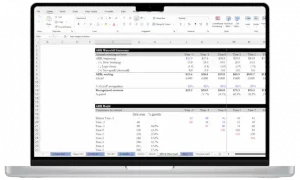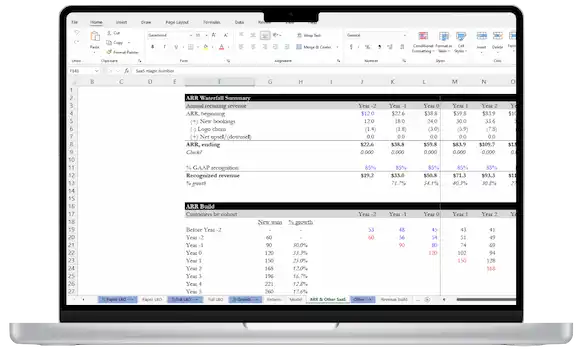Growth Equity Career Path
With the rise of the growth and technology investing, many have become interested in the growth equity career path. In this article, I’ll discuss the typical roles and career progression within growth equity funds.
Growth Equity Careers
Before I go deep into growth equity career path for investing roles, it’s important to point out that roles on the investment team are not the only ones available within growth equity firms.
Depending on the size and resources of the firm, growth equity firms typically have the following teams:
- Investment team – The core team that identifies, vets, and supports investments into growth companies; I will discuss the career path this in depth below
- Finance & accounting – This team is responsible for the internal bookkeeping and finance related to managing the fund
- Fundraising & investor relations – Many larger funds have a dedicated team that is responsible for raising money and managing relationships with limited partner investors; at smaller funds, investment team members are often asked to support as well
- Legal – Many funds hire internal lawyers to advise the fund on legal issues
- Capital markets – While growth equity portfolio companies are not likely to require lots of debt capital, some growth funds hire internal capital markets professionals to assist portfolio companies with IPOs and other capital markets activities
- Consulting – Larger funds hire internal consultants (full-time) or advisors (part-time) to assist portfolio companies with specific value-add projects (e.g. pricing analysis, expansion to new geographies, etc.)
Growth Equity Career Progression
The primary roles on growth equity investment teams are:
- Analyst – most junior, mostly supports sourcing and cold calling
- Associate – junior, mostly responsible for sourcing and deal diligence
- Senior Associate – still junior, but starts taking more responsibility
- Vice President – mid-level, “leads” deals and actively manages the deal process
- Principal – quite senior, almost a “partner in training”
- Managing Director (MD) or Partner – the most senior role, usually involved in courting high value prospects and representing the deal internally
With each of these roles, one takes on more responsibility, but also compensation and clout internally. I discuss each role in detail below.
Growth Equity Analyst
Growth equity analysts are primarily responsible for identifying new investment prospects and making first contact via cold calling. Depending on the firm and analyst experience, he or she may contribute to deal team activities and diligence, or may be solely dedicated to new investment sourcing. Contrary to entry-level investment banking jobs, growth equity analysts get exposure to direct investing but they often must make a conscious effort to learn the technical skills required contribute to diligence (e.g. modeling, etc.).
- Pre-MBA role
- Typical prerequisites: graduate and high-performer at top undergrad school; usually, has had finance, technology, entrepreneur, or sales related internships
- Typical age: 22-25
- Typical promotion time: 2-3 years
Growth Equity Associate
Growth equity associates are junior members of the investment deal team who take lead on performing diligence and execution tasks for so-called “active” deals. Their work is usually overseen by Senior Associates or Vice Presidents, who lead the diligence process. Associates are also involved in sourcing of new investments (e.g. cold calling new prospects), as well as assisting portfolio company management.
- Pre-MBA role
- Typical prerequisites: strong undergrad school for investment banking + 2 years of investment banking, management consulting, or other corporate finance experience
- Typical age: 24-28
- Typical promotion time: 2-3 years
Growth Equity Senior Associate
Like Associates, Senior Associates at growth equity firms performs diligence and execution on “active” deals, but starts to take on more responsibilities, such as managing and coordinating more junior deal professionals (e.g. analyst or associates) during diligence tasks; still quite involved in sourcing of new investments and even cold calling as well.
- Could be pre-MBA or post-MBA role: depending on firm, sometimes folks are promoted internally to this role after 2-3 years as an associate; sometimes this role is offered post-MBA
- Typical prerequisites: 2-3 years as an associate
- Typical age: 24-28
- Typical promotion time: 2-3 years

- 88 lessons
- 18 video hours
- Excels & templates
Growth Equity Vice President
Typically responsible for leading day-to-day execution and diligence on active deals; will generally be responsible for presenting to investment committee while being able to answer questions that are “in the weeds”; also, takes an active role in proposing and developing entire new investment themes and/or taking part in senior-level investment sourcing
- Post-MBA role: usually considered the first “partner-track” role
- Typical prerequisites: multiple roles in banking, finance, consulting, tech, or entrepreneurship before MBA at a top school
- Typical age: 30-36
- Typical promotion time: 2-4 years
Growth Equity Principal
At many firms, this role operates similar to partner or Managing Director (MD), where he or she is the senior person sponsoring deals and winning support for them within the firm. He or she will typically not be actively driving day-to-day diligence on new deals, but is likely aware of many details and is shaping the questions for investigation. Often, senior principals will not overlap with Partners or Managing Directors on deals, so as not to have too many senior sponsors on one deal. Principals play a leading role in winning deals and in sourcing new investments by cultivating a senior level network of contacts. Some firms do not have this role and VPs can skip directly to partner level.
- Post-MBA & partner-track role
- Typical prerequisites: demonstrated track record of 3-4 years as a Vice President; plus experience as a (senior) associate
- Typical age: 32-40
- Typical promotion time: 3-4 years
Growth Equity Managing Director (MD) or Partner
Ultimate decision maker within the deal team on whether to pursue an investment. Managing Directors actively source new investments and represents the firm with senior-level, industry contacts. Managing Directors also plays active role in winning approval or consensus for deals internally. As “partners” with lots amounts of carry and ownership in the fund, Managing Directors participate in executive-level decisions and management for the firm (e.g. personnel management, fund strategy, or other matters).
- Post-MBA level role
- Typical prerequisites: Same as principal but with 3-4 years as principal
- Typical age: 33-45
- Typical promotion time: n/a
Growth Equity Careers Pros and Cons
Having started my investing career at General Atlantic, a top growth equity firm, I’m a huge advocate of the growth investing path.
Here’s some of the best parts of starting a career in growth equity:
- Exciting companies – unlike most private equity buyouts, you invest in dynamic, exciting companies that are growing quickly
- Theme-driven – it’s fun to think about where the world is going and figure out the best ways to invest behind (support) those positive changes
- Contribute as a junior team member – the focus on sourcing allows junior folks to get great experience from early on; however, this does contribute to long hours in growth equity
- Analytical – Unlike VC, there’s usually deep modeling and diligence done on companies
- Attractive returns & high compensation – Typically much better than venture capital overall and similar to private equity for junior-level roles; see this guide for full deep dive on growth equity compensation
- Impactful – Unlike private equity, you generate returns through growth, rather than debt
- Nice people 🙂 – While it’s not always true, investors must be nice and easy to work with to be selected by companies
Though I’m a strong advocate of growth equity careers, there are some drawbacks to consider:
- Amount of sourcing work – Some firms design their junior roles to be mostly or wholly sourcing and cold-calling, which is more than some candidates want to do; I’ve written previously about my contrarian take on sourcing and cold-calling (hint: I actually think it’s one of the best parts of the job)
- Limited governance power – Unlike private equity, where firms typically purchase controlling stakes, growth equity firms purchase minority stakes. This means they have smaller ownership stakes and often
- Competitive – Given the influx of firms investing in the growth stage, deals can be quite competitive and firms can be force to be “price takers” in order to win access to deals which can take away from the sense of craft investors like to have
Growth Equity Exit Opportunities
While many growth equity firms promote from within, should one decide to leave his or her firm, the so-called “exit opportunities” are often quite attractive (and diverse) for young growth equity professionals.
Many analysts and associates graduate from growth equity roles to do amazing things like:
- Business school
- Work at portfolio company
- Startup founder
- Venture capital
- Other investing (e.g. private equity or hedge funds)
Speaking from personal experience, among the associates in my class at General Atlantic, at least one person went on to do each of the roles listed above after leaving General Atlantic!
How To Get a Growth Equity Role
Landing a growth equity role can be challenging; however, if you’d like to go deep on how to do this, I’ve created a full course on how to ace your interviews and maximize your chances of landing a role in growth equity. Check it if you’d like to learn more!


 Break Into Growth Equity
Break Into Growth Equity
